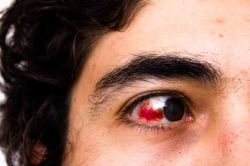Top Class Actions’s website and social media posts use affiliate links. If you make a purchase using such links, we may receive a commission, but it will not result in any additional charges to you. Please review our Affiliate Link Disclosure for more information.

The uvea is the part of the eye that consists of the iris, choroid, and ciliary body. Uveitis is the inflammation of this area. Although it may not be initially dangerous, many uveitis patients may lose their vision. Other vision problems may follow uveitis.
There are several different kinds of uveitis. The particular type is determined by the location of the inflammation and source of uveitis complications: anterior uveitis/iritis for the front of the eye, posterior uveitis/choroiditis for the back of the eye, intermediary uveitis/cyclitis for the ciliary body, and panuveitis for all components of the uvea.
Uveitis symptoms may include eye redness, eye pain, light sensitivity, blurred vision, spots in vision, and decreased vision, according to the Mayo Clinic. Uveitis symptoms may appear in one or both eyes and may appear and increase suddenly.
There are some uveitis treatment options including anti-inflammatory eye drops of other forms of medications. Some antibiotics may be effective. Surgery to remove some of the gooey part of the eye may also be performed if necessary.
Quinolone Uveitis Study
The study was published online in JAMA Ophthalmology in October. It was headed by Dr. Brennan Eadie, who worked at the University of British Columbia. Over 13,000 men between the ages of 40-85 were found to have a uveitis diagnosis between 2001 and 2011.
It was discovered that Ciprofloxacin and Moxifloxacin were the primary quinolone drugs that increased the risk of developing eye damage problems. Moxifloxacin was the highest of the two, according to the researchers. First-time users were also more likely to experience eye damage from alleged quinolone side effects. Levofloxacin also had a slightly higher rate of uveitis complications, but the researchers did not determine these numbers to have any statistical significance.
The researchers concluded that while their study was limited in some areas (only examining older men), “future studies, if able, would benefit from analyzing relationships between individual Moxifloxacin dosing regimes and uveitis.”
The researchers suggested that “clinicians should be aware of a possible risk for uveitis with oral Moxifloxacin or Ciprofloxacin when deciding to prescribe these medications.”
Quinolone drugs are strong antibiotics that are used to treat certain bacterial infections. They used to only be used for certain situations, but are becoming more widely used.
Do YOU have a legal claim? Fill out the form on this page now for a free, immediate, and confidential case evaluation. The attorneys who work with Top Class Actions will contact you if you qualify to let you know if an individual lawsuit or class action lawsuit is best for you. [In general, antibiotic injury lawsuits are filed individually by each plaintiff and are not class actions.] Hurry — statutes of limitations may apply.
ATTORNEY ADVERTISING
Top Class Actions is a Proud Member of the American Bar Association
LEGAL INFORMATION IS NOT LEGAL ADVICE
Top Class Actions Legal Statement
©2008 – 2024 Top Class Actions® LLC
Various Trademarks held by their respective owners
This website is not intended for viewing or usage by European Union citizens.
Get Help – It’s Free
Join a Free Fluoroquinolone Antibiotic Class Action Lawsuit Investigation
If you took Cipro, Levaquin, Avelox, Noroxin or Factive and were diagnosed with an eye injury or nerve damage, you may have a legal claim. Submit your information now for a free case evaluation.
An attorney will contact you if you qualify to discuss the details of your potential case at no charge to you.
Oops! We could not locate your form.












